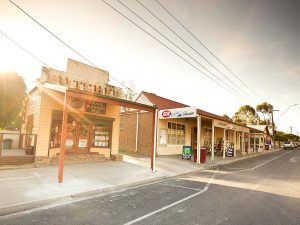Note: that year there were two recipients: Sabina Knight and Gordon Gregory. Following are the comments made by the latter on receiving the award.
This is a great honour. I would like to thank the Toowoomba Hospital Foundation and all of those associated with the award.
I want to make three points.
Everything you do affects your health. The time you get out of bed. What you have for breakfast. Whether the roof leaks and whether you have a car in your garage. Whether you have a roof, whether you have a car, whether you have a garage. Whether you have a job to go to and if so, what sort of job it is and how well you are paid. The ethnic and cultural group to which you belong. Whether you smoke. How much you drink. Whether you can read and write, and what age you were when you left school. Whether you exercise. Your gender. Your genetic make-up (it seems ironic that you may be able to understand and even control the health impact of your personal genetic make-up before you can understand and control the health impact of housing, nutrition or employment on your own community)).

Most intriguing of the things that affect your health is whether you know the names of your neighbours – and whether you are a member of the local bowls club or its equivalent.
What all of this means is that we have to be working with interest groups and professional organisations across the board: in education, transport, economic development, taxation, community services, housing, arts and recreation. It must be our goal as people interested in health outcomes to think, act and work on a broad front. We must get architects, economists and sociologists to attend health conferences. We must get shire clerks, sports organisers and regional development officers to attend conferences like this.
Second, health professionals might consider the impact of their professional self-interest on their own work and on the people they serve. One does not see economists, physicists or sociologists banding together to promote their own profession at the potential expense of the field of endeavour in which they work, or at the potential expense of those affected by their work. The health sector is characterised by an extraordinary level of professional fragmentation, by a mess of public service and private profit arrangements, and by direct conflict between the interests of professional groups and of the people they serve. All of these are holding back the contribution that health professions could make to health gain.
Third, imagine what we could do if every individual and every organisation represented in this room agreed jointly on two or three demands of themselves, of their organisations and of governments, which were related to improved health for people in rural and remote Australia. There is still much more to be gained from talking together, meeting together and working together in collaborative alliances for better health.

Thank you.
